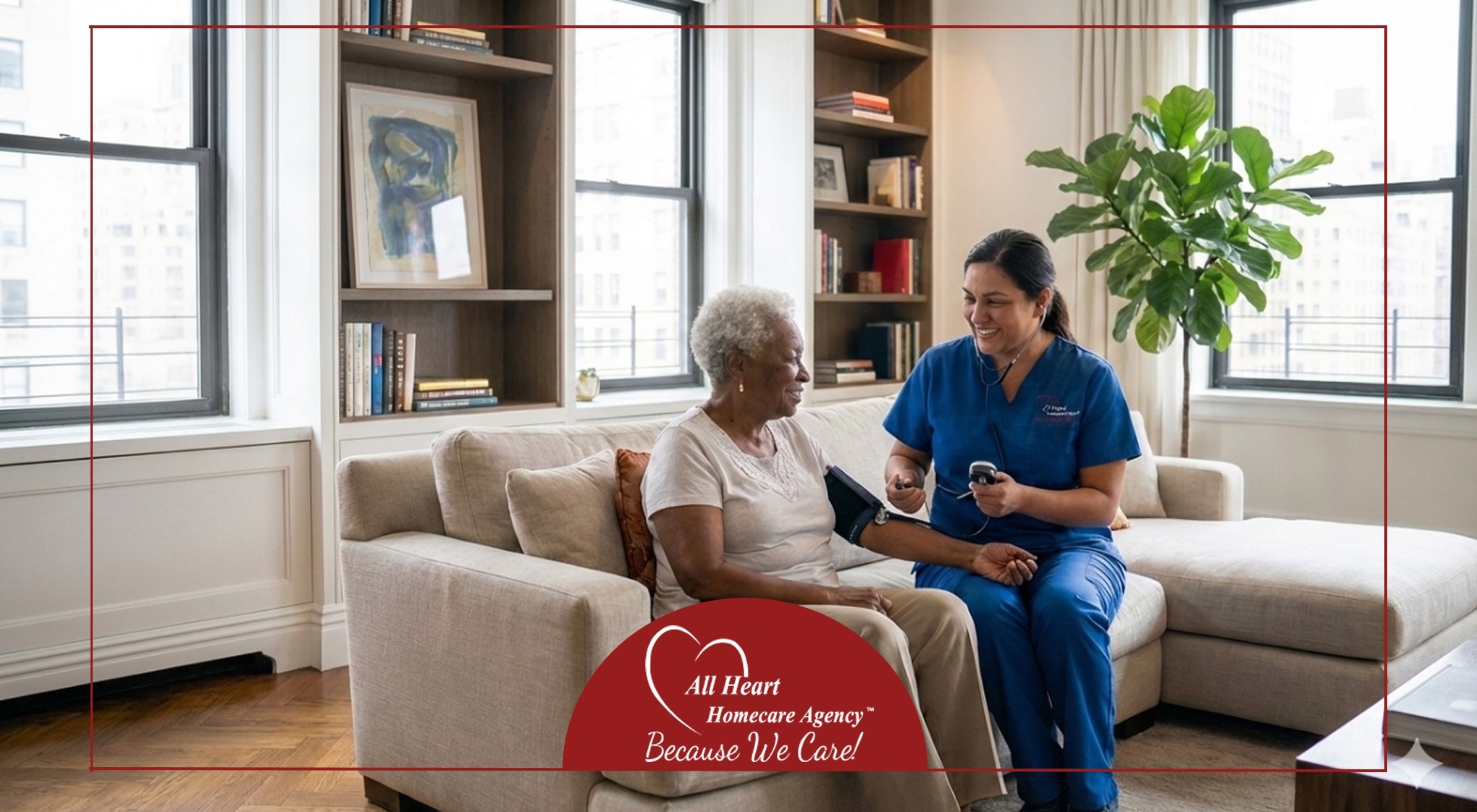Did you know that every 15 Americans aged 71 or older, 2 of them are living with dementia? More than 7 out of 10 people with AD live at home and are cared for by family or friends.
It is very likely that a HHA/PCA worker will encounter a client with the disease, which is why it is important to understand and know how to manage someone with the disease.
When you hear the word “dementia” you probably think of Alzheimer’s Disease; and, it is true: Alzheimer’s Disease (AD) is the most common form of dementia.
Alzheimer’s Disease is a progressive, irreversible, and degenerative disease. It is not a normal part of aging. As Alzheimer’s damages the amygdala a patient will become emotionally unstable exhibiting a range of psychological problems such as:
- Anxiety
- Sadness
- Stress
- Anger
- Paranoia
Nerve cell damage contributes to the appearance and progression of symptoms over the years. However, there is no way of predicting the course of disease.
ATTITUDES TO PROVIDE THE BEST CARE FOR CLIENTS
- Do not take it personally (remember that it is the disease, not the person);
- Put yourself in their shoes (treat clients with AD with dignity and respect, as you would want to be treated);
- Work with the symptoms and behaviors;
- Work as a team (always report and documents observations about
your clients); - Work with family members;
- Take care of yourself.
STRATEGIES FOR BETTER COMMUNICATION WITH AD PATIENTS
- If the client is frightened or anxious:
– Try to keep him calm;
– Speak slowly in a low, calm voice;
– Always describe what you’re going to do;
– Use simple words and short sentences. - If the client forgets or shows memory loss: Repeat yourself; use the same words if you need to repeat an instruction or question.
Many clients with AD will repeat words, phrases, questions, or actions. If your client perseverates, do not try to stop him/her. Answer questions, using the same words each time until he/she stops. - If the client has trouble finding words or names don’t rush the client and don’t complete the sentence for him/her.
- If the client is verbally abusive or uses bad language: Remember it is the
dementia talking, not the person. Try to ignore the language and redirect attention to something else. - If the client hallucinates (sees or hears things that are not really happening), is paranoid or accusing:
– Do not take it personally;
– Try to redirect behavior or ignore it;
– Attention span is limited. This behavior often passes quickly;
– It’s important not to argue with patient, but one shouldn’t agree with false statements either. - Always allow patients with AD to do as much as they can for themselves, even if it takes longer for them to do it, allowing for independence.
BE SURE TO REMEMBER…
Family Caregivers:
- The disease can be stressful and overwhelming for them (Music Therapy: listening to or singing songs can provide emotional and behavioral benefits for patients with Alzheimer’s disease);
- They need a break once-in-awhile (We recommend playing some games in senior’s free time: Crosswords, Puzzles, Board games);
- They need support;
This is why the HHAs who work with these patients are so important!
All Heart Homecare is glad to help their team members reach their goals and strive for more. Our work experience allows us to find an approach not only to clients, but to home attendants as well.
Our agency is constantly looking for new members of the team. If you want to be a part of our company – contact us today at 718-285-9727. We are waiting for your application!












